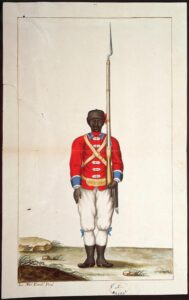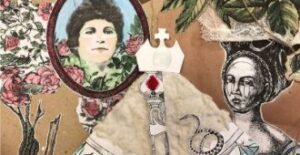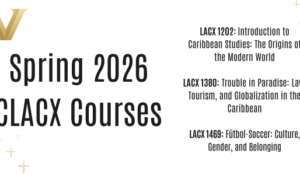Cuba
Cuba is bound by a communist system that disconnects and divides the island from Cubans living in the United States. Of course, the United States’ embargo plays a central role in creating an antagonistic relationship that informs Cuban and Cuban American identities. Despite the recent restoration of diplomatic ties between Cuba and the United States, Cubans on and off the island continue to struggle with nostalgia for a pre-Castro Cuba and present realities. CLACX faculty examine all aspects of this pivotal nation, from its literature and history, to its present role in the Americas.
Research Projects
Visionary Aponte: Art and Black Freedom
This exhibition brings together twenty contemporary artists working across a range of media to interpret an extraordinary—and now lost—historical artifact: a so-called “Book of Paintings” created by José Antonio Aponte, a nineteenth-century Afro-Cuban revolutionary and artist. Authorities found the “Book of Paintings” in 1812 during the investigation into a major antislavery conspiracy in Havana. During the trial, Aponte was forced to describe his book in detail. Its pages portrayed lush landscapes and Biblical stories; Roman goddesses and Spanish kings; black men as warriors, emperors, and librarians; Rome and Ethiopia; Havana and the heavens. Shortly after testifying, Aponte was publicly executed, his head severed from his body, and placed on a pike inside a cage in a well-travelled crossroads in the city. Then, his “Book of Paintings” disappeared.
Vanderbilt University Fine Arts Gallery, Curated by Édouard Duval Carrié and Ada Ferrer
January 9–March 8, 2020
The exhibition also incorporates—and the art engages—scholarly research on Aponte and his world by NYU Julius Silver Professor of History and Latin American and Caribbean History Ada Ferrer, author of the prize-winning book Freedom’s Mirror: Cuba and Haiti in the Age of Revolution, and art historian Linda Rodríguez, curator of the digital humanities website Digital Aponte.

Found in Cuba: The Ingenuity and Creativity of Ediciones Vigía
 An online exhibit has been created based on an exhibit in Special Collections and the exhibit-opening lecture given by Paula Covington, subject librarian for Latin American and Iberian Studies. Ediciones Vigía began making handmade books in Matanzas, Cuba, in 1985, limited to 100-200 copies, to make national literature known to Cubans and to create beautiful books. Despite the economic hardships of the 1990s, known as Cuba’s “special period,” they continued in the same house, relying entirely on volunteers and repurposed materials, creatively using brown paper, burlap, string, tobacco leaves and whatever is available. While many government-supported publishers in Cuba have had to close over time, Vigía still thrives today as an independent publishing house on Watchtower Square. Over the years Vanderbilt has built a collection of almost 150 of these artists’ books, primarily acquiring them through trips to Cuba and Mexico. Enjoy the online exhibit.
An online exhibit has been created based on an exhibit in Special Collections and the exhibit-opening lecture given by Paula Covington, subject librarian for Latin American and Iberian Studies. Ediciones Vigía began making handmade books in Matanzas, Cuba, in 1985, limited to 100-200 copies, to make national literature known to Cubans and to create beautiful books. Despite the economic hardships of the 1990s, known as Cuba’s “special period,” they continued in the same house, relying entirely on volunteers and repurposed materials, creatively using brown paper, burlap, string, tobacco leaves and whatever is available. While many government-supported publishers in Cuba have had to close over time, Vigía still thrives today as an independent publishing house on Watchtower Square. Over the years Vanderbilt has built a collection of almost 150 of these artists’ books, primarily acquiring them through trips to Cuba and Mexico. Enjoy the online exhibit.




